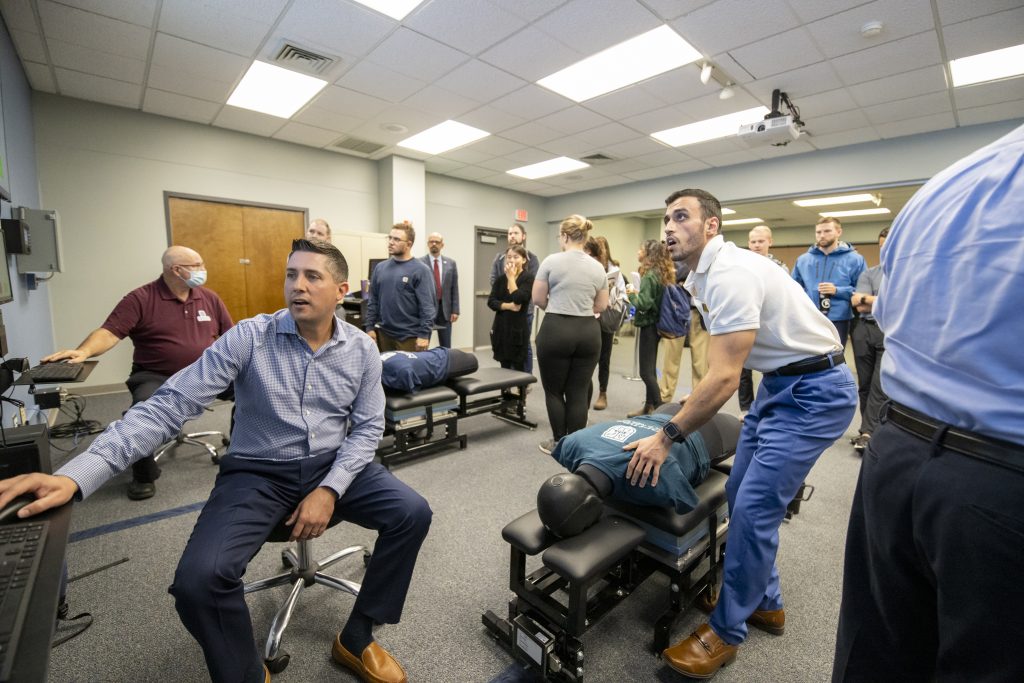
FAST Lab mannequins and tables are equipped with sensors and cameras that capture each adjustor’s motions, mapping out the biomechanics of the adjustor’s body
In Fall 2022, Northeast College of Health Science unveiled a new learning space featuring the latest innovation in chiropractic education. The Force Assessment Simulation Technology (FAST) Lab boasts the same ground-breaking technology that has been helping today’s elite athletes improve and optimize their skills and performance.
Northeast’s FAST Lab was officially introduced during a grand-opening ceremony on Oct. 13, 2022, where media, faculty, staff and students participated in demonstrations on how Force Sensing Table Technology™ (FSST) works and how it can help train expert chiropractic adjustors.
College President Dr. Michael Mestan said the revolutionary technology incorporated in the FAST Lab will complement Northeast’s already-rich curriculum of lectures, clinical rotations and human cadaveric dissection labs to provide yet another tool in an education designed for student success.
The FAST Lab: How It Works
In the FAST Lab, Northeast’s doctor of chiropractic students work with human analogue mannequins on treatment tables, both embedded with Force Sensing Table Technology™ that allows them to receive on-demand data regarding adjustment force, direction, amplitude and speed. This information guides the learning process as students develop the psychomotor skills to make accurate high-velocity, low-amplitude thrust adjustments.
The lab also uses Dartfish technology, which allows video data of each adjustment to be collected in real-time. FAST Lab mannequins and tables are equipped with sensors and cameras that capture each adjustor’s motions, mapping out the biomechanics of the adjustor’s body. This provides data about each student’s position, stance and movement which, with faculty help, can be analyzed to optimize adjustment efficiency and effectiveness.
“The technology is a great tool for providing direct feedback,” said Dr. Brett Carnevale, assistant professor in the Integrated Chiropractic Therapies Department at Northeast. “Professors can’t feel what students are doing or feel what they feel. This tool provides feedback a person can’t. It adds to our expertise and helps our students build the confidence and technique skills they need to succeed.”
Research and the Future of the FAST Lab
As the FAST Lab develops, Northeast faculty will continue to incorporate technology allowing the college to support the performance and progress of each chiropractic student from the time they make their first adjustment until graduation.
Northeast Dean of Research Dr. Jean Burke said the college will also be conducting research that highlights not only how this new technology compliments the Northeast learning experience but that also grows understanding and subsequent education around chiropractic’s therapeutic effectiveness and patient comfort. As Burke said, “We need to find out how to add the patient perspective.”